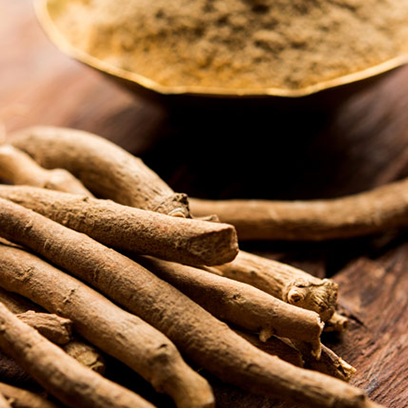ASHWAGANDHA
Ashwagandha (Withania Somnifera) is a substance that has been used for thousands of years. It is widely employed in Ayurvedic medicine for its properties, which are primarily applied in boosting the immune system and therefore the ability to cope with stress factors, be these environmental or emotional, as well as in enhancing strength and energy. In Sanskrit, the name Ashwagandha refers to strength and vigour, and was prescribed for those in the process of recovery to reinvigorate the immune system after an illness. This is why it is successfully used to: boost the body’s immune defences; eliminate toxins associated with mood changes (anxiety and depression); support the body when faced with situations that call upon a considerable amount of psychophysical energy needed to cope with a disease; practise sport; concentrate while studying, and improve memory during exams. The Ashwagandha plant is a herbaceous shrub that stands as tall as a person, and prefers a warm climate. In some regions of the world, it grows wild: for example in Sri Lanka, Pakistan, Nepal and India. Elsewhere, it is cultivated; this is the case in some areas of Africa and Mediterranean Europe. Italy is one of the main producers of this vegetable, which belongs to the Solanaceae family, which included tomatoes and aubergines. Sicily and Sardinia offer the most favourable environment for it to flourish. At present, the part of the Ashwagandha plant which is mainly used is the root. However, several studies are under way to assess the efficacy of the small oval leaves and the round fruits with their known properties, and which reflect the light yellow flowering. They change colour as they ripen, ranging from green, yellow and orange to deep red. The Ashwagandha root contains withanolides, which belong to the lactone group, as well as alkaloids, amino acids, iron and sugars. In addition to protecting the immune system, the plant also possesses antioxidant properties. This means that its components can reduce cell damage caused by free radicals and thus protect all the cells in the body, including neurons. Its ability to combat brain degeneration has led to the development of numerous studies regarding its use in Alzheimer’s and Parkinson’s disease. Ashwaganda has been described as an adaptogenic plant, because it is able to adapt to and compensate for all manner of changes that affect our psychological and physical equilibrium. Its adaptogenic characteristics also make it suitable for thyroid deficiencies such as Hashimoto’s thyroiditis and hypothyroidism. Conversely, it may be contraindicated in hyperthyroidism, during pregnancy, and while breastfeeding. It is also known as Indian Ginseng, although it does not share its botanical qualities.
Used in: Pinelli Immuno Project™

